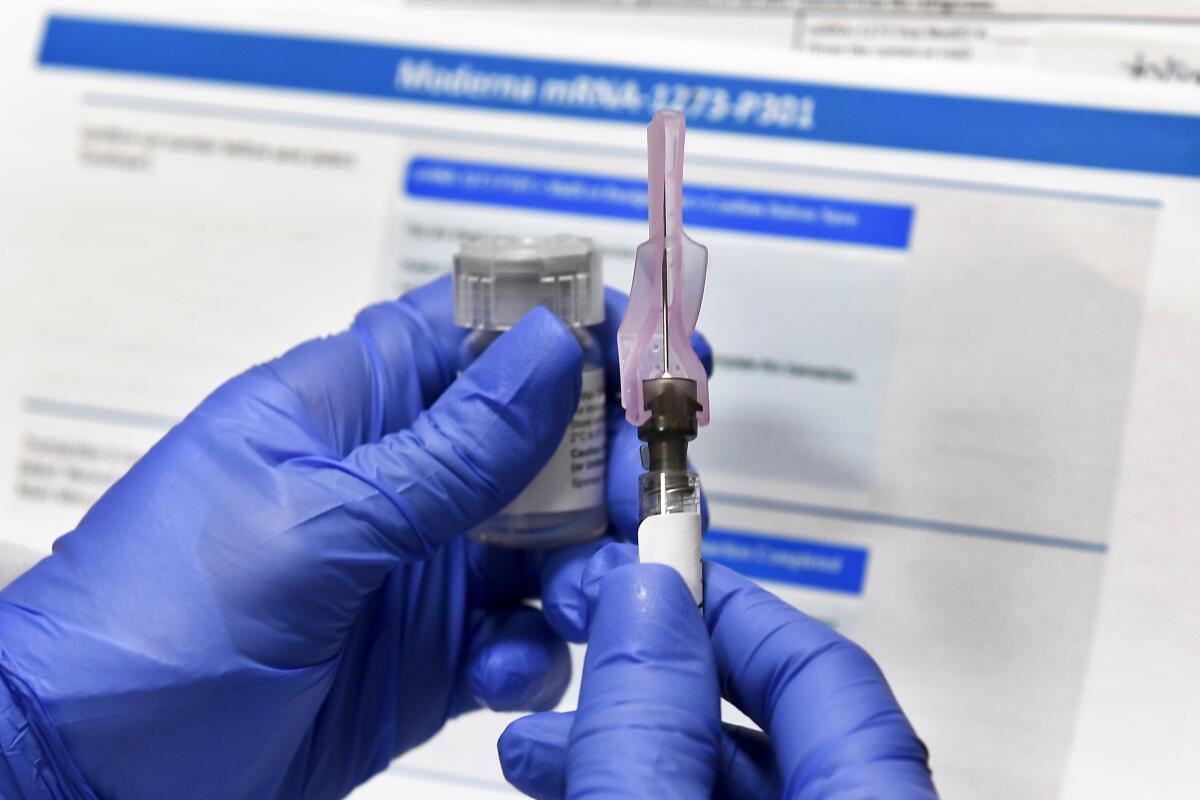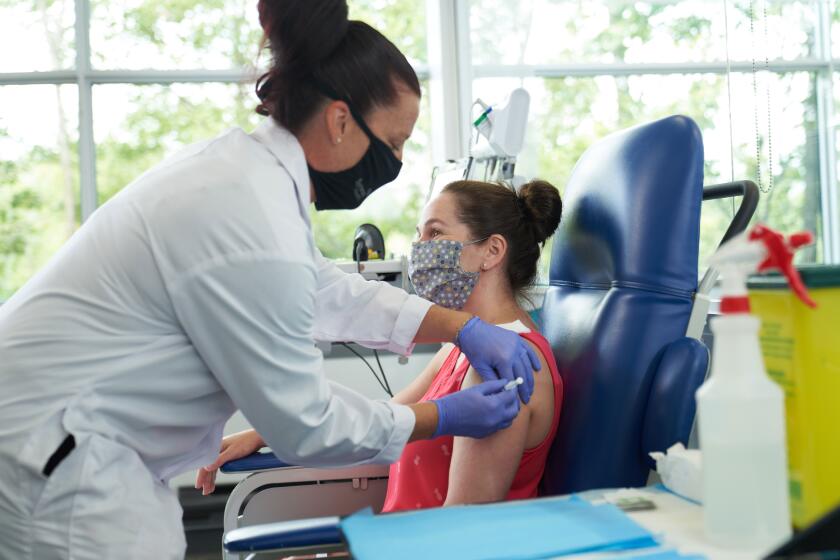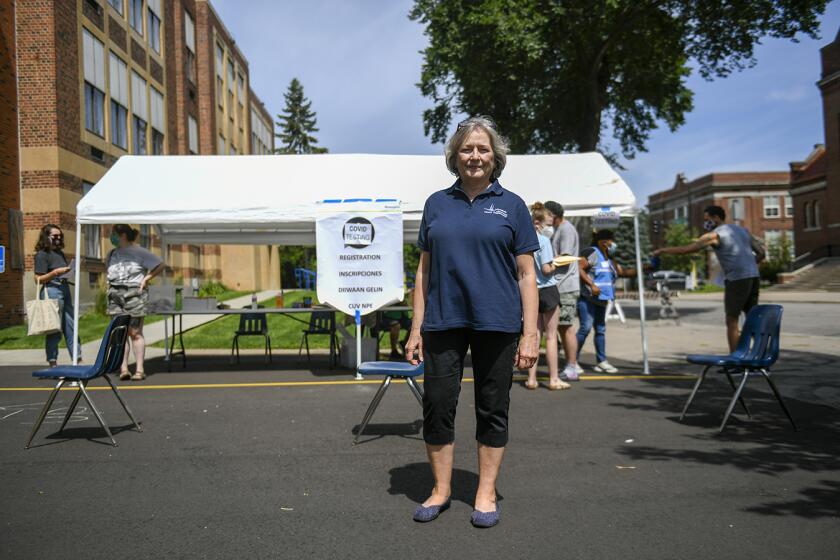Companies working on coronavirus vaccines pledge to put science above politics

The chief executives of nine drugmakers leading the race to produce vaccines against the coronavirus signed a joint pledge Tuesday in an effort to boost public confidence in any vaccines that are ultimately approved by the U.S. Food and Drug Administration or similar agencies around the world.
The companies said they will follow “high ethical standards and sound scientific principles” as they conduct their time-sensitive work against a global pandemic.
“We believe this pledge will help ensure public confidence in the rigorous scientific and regulatory process by which COVID-19 vaccines are evaluated and may ultimately be approved,” the companies said.
Public health officials in the U.S. worry that if many Americans don’t trust the vaccines that become available and decline to get them, it will be harder to reduce the spread of COVID-19.
The first wave of coronavirus vaccines might be like a flu shot, experts say, curbing symptoms in some patients but not protecting them from COVID-19.
Specifically, the nine firms pledged to:
• Make the safety of people who receive coronavirus vaccines their “top priority.”
• Conduct clinical trials of their experimental vaccines according to “high scientific and ethical standards.”
• Seek regulatory approval for candidate vaccines only after safety and efficacy have been established through Phase 3 clinical trials.
• Produce a range of vaccines to meet the differing needs of people around the world.
The pledge was signed by the chief executives of American drugmakers Johnson & Johnson, Merck, Moderna, Novavax and Pfizer, and European companies AstraZeneca, BioNTech, GlaxoSmithKline and Sanofi.
They noted that collectively, their firms have developed more than 70 vaccines against “some of the world’s most complex and deadly public health threats.”
The statement comes amid worries that the FDA will be under political pressure from President Trump to provide emergency use authorization to a vaccine before the tests needed to prove it is safe and effective are finished.
Underfunded health departments say they lack the staff, money and tools to distribute, administer and track doses of COVID-19 vaccine for millions of people.
Those concerns were renewed last week after it came to light that the Centers for Disease Control and Prevention had asked public health departments around the country to prepare to distribute a coronavirus vaccine in a matter of weeks. Plans should be drafted no later than Oct. 1, a date that is in line with the “earliest possible release of COVID-19 vaccine,” according to a four-page memo from Dr. Nancy Messonnier, director of the CDC’s National Center for Immunization and Respiratory Diseases.
In addition, Dr. Robert Redfield, director of the Centers for Disease Control and Prevention, asked governors to be prepare to distribute a coronavirus vaccine by Nov. 1. That request was first reported by McClatchy.
The presidential election is Nov. 3.
Last week, a trade group representing the pharmaceutical industry issued an open letter calling for the “objective assessment of new data” relating to the vaccines and treatments being developed to counter COVID-19. Public confidence in new products depends on transparency and integrity in the evaluation process, the letter states.
“FDA should maintain its historic independence as the gold-standard international regulatory body, free from external influence,” current and former leaders of the Biotechnology Innovation Organization wrote. “Political considerations should be put aside by Republicans and Democrats alike. Our nation’s leaders should reassure the public that politics will not influence the development and approval of new medicines.”









